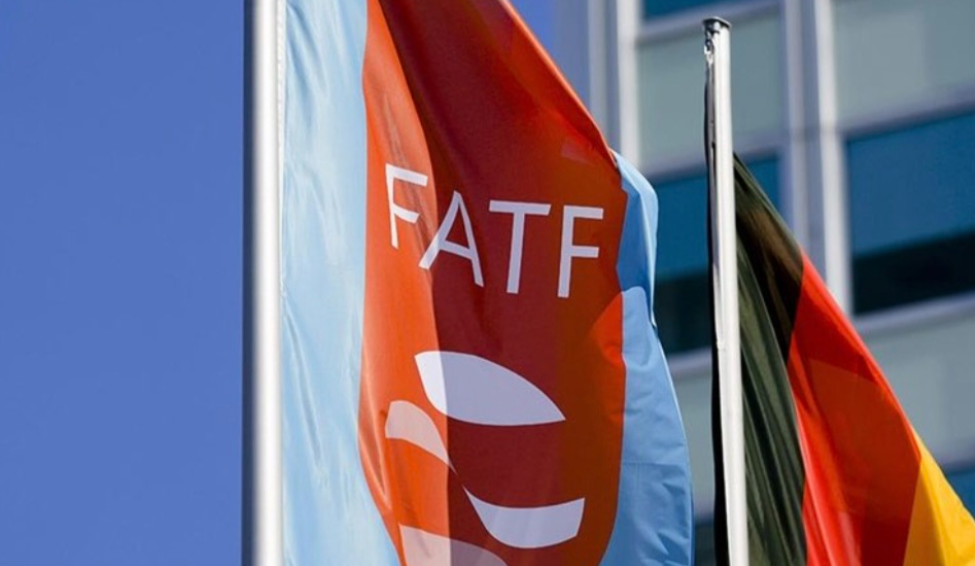Copyright thenationonlineng

The removal of Nigeria from the Financial Action Task Force (FATF) grey list would enhance investors’ confidence and inflows of investments into the economy. Commendations continued to trail the weekend removal of the country from the grey list, with experts describing the achievement as a reflection of improvements in the country’s financial and economic regulatory systems. The naira yesterday recorded significant gains, appreciating by N10 per dollar and closing the day at N1,486 per dollar at the parallel markets. Director General, Securities and Exchange Commission (SEC), Dr. Emomotimi Agama said the removal was a clear reflection of the country’s renewed policy direction and commitment to transparency. He said the development would significantly enhance investor confidence and attract more foreign investments. He said: “It means so much for us in the capital market; it means so much for us in the financial system. It brings about something that we have been craving for – investor confidence “The release of Nigeria from the FATF grey list means that investor confidence would be boosted. Delisting from that grey list sends a very strong signal to investors and trading partners that Nigeria has made significant progress in strengthening its anti-money laundering and countering of financing of terrorism regulations”. He described the delisting as a “welcome call to new investments,” saying it would further strengthen productivity and growth in the Nigerian economy. READ ALSO: Enablers of Kanu self-destructive behaviour President, Association of Bureaux De Change Operators of Nigeria (ABCON), Aminu Gwadabe, said: “The recently announcement of the Financial Action Task Force on the Exist of Nigeria from its Grey list known as Dirty money list on Friday the 24th of October 2025 as result of Nigeria preparedness on remediating their 40 recommendations have tremendously induced confidence, and removed tension in the market”. He said: “The impacts reflecting plausibly as naira appreciate against dollars with N10/$”. At the official window, the naira traded at N1,457/$, maintain stronger position Nigeria Extractive Industries Transparency Initiative (NEITI) applauded Nigeria’s anti-corruption and financial integrity institutions for securing the country’s removal from the Financial Action Task Force (FATF) Grey List—a global list of countries under increased monitoring for financial integrity risks. In a statement, NEITI’s Executive Secretary, Orji Ogbonnaya Orji, described the delisting as “a strong vote of confidence in Nigeria’s ongoing reforms to combat corruption, improve financial transparency, and strengthen accountability systems across all sectors of the economy.” He noted that the achievement followed demonstrable improvements in the country’s Anti-Money Laundering and Counter-Terrorist Financing (AML/CFT) framework, enhanced regulatory oversight, and stronger collaboration among key national agencies. He highlighted the importance of existing Memoranda of Understanding (MoUs) between NEITI and institutions such as the EFCC, NFIU, and ICPC, which have proven effective in promoting information and data sharing to track illicit financial flows and money laundering. Grassroots Mobilization Initiative (GMI) also expressed support for the leadership of President Bola Tinubu, following the monumental announcement of Nigeria’s official removal from the Financial Action Task Force (FATF) grey list. In a statement issued by its National Coordinator, Samaila Musa, the GMI described the development as a decisive victory for Nigeria’s economic sovereignty, institutional integrity, and global credibility under President Tinubu’s Renewed Hope Agenda. He said: “This achievement, successfully communicated by the Presidency’s strategic team, is not merely a technical compliance milestone; it is a decisive victory for Nigeria’s economic sovereignty, institutional integrity, and global credibility under the Renewed Hope Agenda.” After implementing a 19-point action plan, the FATF removed Nigeria from the list more than two years later, acknowledging the country’s progress in tightening its AML/CFT framework. Speaking on Channels Television’s Morning Brief, Agama described the development as a major milestone in Nigeria’s journey towards economic reform, institutional integrity, and global credibility and commended the Mrs. Hafsat Abubakar Bakari, Director/Chief Executive Officer of the Nigerian Financial Intelligence Unit and her team for their diligence in implementing the country’s action plan. He said: “The NFIU was in the fore front of this initiative and we commend their commitment which has earned Nigeria global recognition for its strengthened institutional framework to tackle financial crimes” He also praised the efforts of the National Security Adviser, the Secretary to the Government of the Federation, the Ministers of Aviation, Budget and Economic Planning, Defense, Foreign Affairs, Solid Minerals, and State for Finance, as well as the leadership of the National Assembly and the Judiciary. Commenting on the announcement, Central Bank of Nigeria Governor, Olayemi Cardoso, said: “The FATF’s decision to remove Nigeria from the grey list is a strong affirmation of our reform trajectory and the growing integrity of our financial system it reflects a clear policy direction and the coordinated efforts of key national institutions working together to deliver sustainable, standards-based reforms. Our priority now is to consolidate these gains, ensuring that compliance, innovation, and trust continue to advance hand in hand to reinforce financial stability and strengthen Nigeria’s global credibility.” The 40-member body, which has the backings of the World Bank Group and International Monetary Fund (IMF) sets international standards to ensure national authorities can effectively go after illicit funds linked to drugs trafficking, the illicit arms trade, cyber fraud and other serious crimes. Orji also commended the contributions of the 24 member agencies under the Inter-Agency Task Team (IATT)—chaired by NEITI and supported by the Technical Unit on Governance and Anti-Corruption Reforms (TUGAR)—noting that political will and non-interference by the Federal Government were critical to the success. He further praised the media and civil society groups for their vigilance, advocacy, and public awareness campaigns, saying their efforts in “naming and shaming” corruption had strengthened accountability and deterrence. According to him, Nigeria’s removal from the FATF Grey List has far-reaching benefits for the economy and governance environment. He said: “These are boost to International credibility and investor confidence, lower cost of financial transactions and improved access to global capital, enhanced business environment and economic growth. “Nigeria’s exit sends a clear signal that our financial system now aligns with global transparency and integrity standards, making the country more attractive for foreign investment and international partnerships”. He said the delisting would reduce Nigeria’s financial risk ratings, improve cross-border transactions, and enhance access to international finance and correspondent banking services. He said: “With the stigma of high-risk status removed, the private sector—especially the extractive industries—will experience renewed investor interest, smoother trade flows, and greater confidence in financial governance”. NEITI emphasised that beyond financial markets, the delisting reflected the strengthening of Nigeria’s institutional reforms and the increased effectiveness of key anti-corruption and regulatory bodies, including the BPP, CCB, CBN, Federal Ministry of Justice, law enforcement agencies, and development partners. He stressed that the improved financial integrity framework provides a stronger foundation for governance in the extractive sector, revenue tracking, and anti-corruption reforms. He urged that the momentum be sustained through deepening reforms on beneficial ownership disclosure and open contracting, strengthening oversight of extractive revenue flows, and expanding collaboration with global transparency and accountability institutions. According to Musa, the delisting marks the culmination of the President’s political will and the implementation of far-reaching legal, institutional, and operational reforms within the country’s Anti-Money Laundering and Counter-Financing of Terrorism (AML/CFT) framework. He said: “For years, the grey listing hampered capital inflows, increased transaction costs for Nigerian businesses, and negatively impacted our financial reputation. “President Tinubu’s commitment has now shattered that barrier, signaling to the world that Nigeria is ready for legitimate, large-scale international investment. This strategic victory will unlock new channels of global partnership and accelerate the economic recovery we all desire. “We commend the President for treating this challenge not as a setback, but as a critical call to action, thereby securing a “strategic victory for our economy and a renewed vote of confidence in Nigeria’s financial governance. “We pledge to intensify our efforts at the grassroots level to communicate the significance of this achievement to every Nigerian, assuring them that the economic pain associated with necessary reforms is yielding tangible, beneficial results”. The group also urged all stakeholders, patriotic citizens, and international partners to recognize this bold step and continue to support the administration’s drive toward a more transparent, stable, and prosperous Nigeria.



